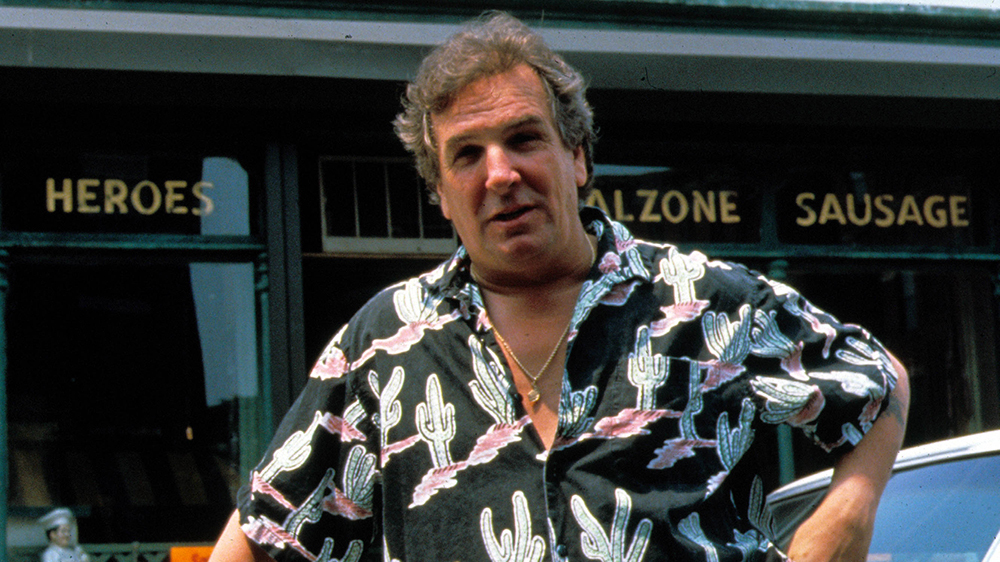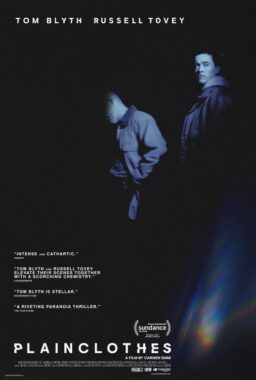Upon hearing of the death of beloved character actor Danny Aiello, at the age of 86 after a brief illness, I went online to look at his filmography. I was a little surprised to discover that he didn’t make his first movie until he was 40, an age when most aspiring actors who haven’t yet broken through have long since given up. And yet, while he may have lacked the classic looks of a typical leading man, Aiello had a genuine Everyman quality that lent a recognizably human edge to the characters that he played over the years that resonated with filmmakers and audiences alike. Although he may have gotten a late start to his career, Aiello quickly made up for lost time with a screen career that eventually earned him an Oscar nomination, and saw him working with some of the most acclaimed filmmakers around.
Born in 1933 in Manhattan, the fifth of six children, Aiello moved with his mother and siblings to the South Bronx when he was seven. At 16, he lied about his age and enlisted in the Army and when he returned three years later, he took a number of odd jobs, including working as a bus driver, a union representative and a bouncer at the Improv comedy club. While working at the latter job, he was occasionally pressed into serving as an emcee and from there, he began to pursue a career as an actor. He made his film debut in 1973 with the baseball drama “Bang the Drum Slowly” and made his first real impression on viewers as Tony Rosato, the gangster who garroted Frankie Pentangeli (“Michael Corleone says hello”) in “The Godfather: Part II” (1974). Over the next few years, Aiello would turn up in a number of supporting roles, usually as tough guys, in films and on television, including “The Front” (1976), “Fingers” (1978), “Defiance” (1980), “Hide in Plain Sight” (1980), “Chu Chu and the Philly Flash” (1981) and “Fort Apache the Bronx” (1981), winning much acclaim for his performance as a racist New York cop in the latter. Also in 1981, he appeared on stage in Woody Allen’s “The Floating Light Bulb” and won a Daytime Emmy for his work on the ABC Afterschool Special “A Family of Strangers.”
He continued to work steadily but by now, the parts were gaining in significance and showed that he could do other things than play a standard tough guy. In Sergio Leone’s gangster epic “Once Upon a Time in America” (1984), Aiello played the corrupt police chief who got a big surprise when he went to change his newborn son in the hospital for the first time. In Woody Allen’s 1985 masterpiece “The Purple Rose of Cairo,” Aiello was the brutish husband of Mia Farrow who drove her to try to escape her problems at the movies with fantastical results. He showed a softer side as Johnny Cammareri, the fiancee who loses his prospective bride to his estranged brother in Norman Jewison’s romantic comedy favorite “Moonstruck” (1987). In addition, there were appearances in the Jackie Chan action film “The Protector” (1985), “Man on Fire” (1987), Allen’s “Radio Days” (1987) and “The Pick-Up Artist” (1987). He even became a familiar face with younger audiences as the result of his appearance as Madonna’s father in her groundbreaking video for “Papa Don’t Preach” (1986).
In 1989, he would take on the role that he would become best known for in Spike Lee’s groundbreaking drama “Do the Right Thing.” As Sal Frangione, the Italian-American owner of a pizzeria in the largely African-American Bed-Stuy neighborhood where long-simmering racial tensions eventually explode over the course of one long, hot day in part because of his character’s refusal to include photos of black celebrities on his Wall of Fame, he has one of the trickier roles to play but instead of simply playing him as a one-dimensional goombah, he invested the character with a certain degree of humanity that helped to make the unfolding situation not so cut-and-dried before arriving at its still-shattering climax. It was perhaps his best and most fully-rounded performance, and it helped to make the film a classic from the moment it first hit screens. His work earned him an Oscar nomination for Best Supporting Actor (one of only two earned by the film) and he won a number of award from critics groups in Chicago and Los Angeles.
Although Aiello’s subsequent film roles would never quite hit the heights of “Do the Right Thing,” the acclaim that he received for his work led to a number of roles in the next few years. He was Tim Robbins’ almost angelic chiropractor friend in the hallucinatory “Jacob’s Ladder” (1990), a frustrated father trying to deal with his daughter (Holly Hunter) and her overbearing fiancee (Richard Dreyfuss) in the wonderful, if sadly underseen, “Once Around” (1991), for which he received a Supporting Actor nomination from the Chicago Film Critics Association. Aiello also teamed up with Bruce Willis, even doing a couple of duets, in the bizarre action-comedy “Hudson Hawk” (1991), a notorious flop at the time which is actually far more entertaining than its reputation might suggest. Later that year, he appeared in “29th Street,” a gentle comedy-drama in which he played the unlucky father of a man whom might have a winning lottery ticket and the next year scored a rare lead role as infamous club owner Jack Ruby in the docudrama “Ruby.” In 1994, he worked with Luc Besson on the action favorite “Leon” and was part of the giant cast assembled by Robert Altman for his curious fashion industry satire “Pret-a-Porter,” where he took what could have been an unpalatable caricature of a character—a buyer for Marshall Fields who is also a cross-dresser—and made him into something more than a tacky sight gag. On television, he played the title role in the miniseries “The Last Don” (1997) and starred in the short-lived 1997 series “Dellaventura,” in which he appeared alongside his son, Ricky.
Although his film work slowed in later years, Aiello was active in other artistic areas. In 2011, in appeared off-Broadway in the play “The Shoemaker,” a 9/11-inspired drama based on the 2006 film “A Broken Sole” that he also appeared in. He also recorded a number of albums, including I Just Wanted to Hear the Words (2004), Live from Atlantic City (2008), My Christmas Song for You (2010) and Bridges (2011). (At some earlier point, he also recorded an answer song to a particular Madonna hit, “Papa Wants the Best for You” and yes, it is on YouTube.) In 2014, he published his autobiography, I Only Know Who I Am When I Am Somebody Else: My Life on the Street, on the Stage and in the Movies. Obviously, his name will continue to live on thanks to his work in “Do the Right Thing.” But as this article hopefully demonstrated, he did a lot of fine and memorable work over the years that is ripe for rediscovery.
And yes, I am totally serious about “Hudson Hawk”—that thing is a blast, and Aiello is hilarious in it.












